How Much Compensation for a Head Injury in Ontario, Canada
How Much Compensation Will I Get For A Head Injury in Ontario, Canada
Head injuries can have a long-term impact on accident victim health and the compensation they receive for such injuries. In Ontario, understanding how much compensation is available to those who suffer from head injuries can be complicated, as many factors determine the amount of compensation.
This webpage will provide an overview of factors that affect the compensation amount, how to avoid injuries and how much compensation may be available in Ontario for minor and serious head injury claims, including information about rights and maximizing chances of full recovery. Additionally, it is recommended to contact a lawyer with specific questions regarding any potential claim.
- Factors That Affect Compensation for Head Injuries in Ontario?
- How Long Do Head Injuries Take to Heal in Ontario?
- How Long After a Head Injury Can Symptoms Occur in Ontario?
- How to Avoid Head Injuries in Car Accidents in Ontario?
- Calculating Compensation: How Much Compensation Do You Get for a Head Injury in Ontario?
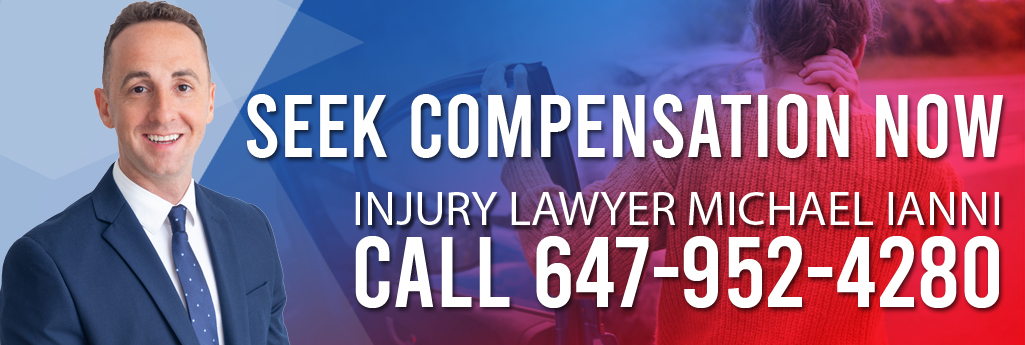
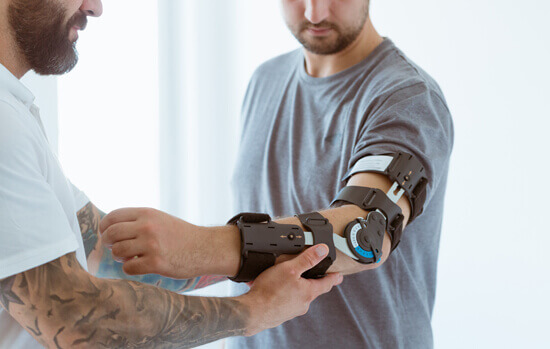
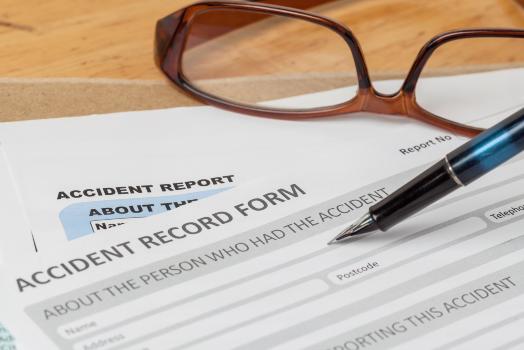
How Much Compensation for a Head Injury in Ontario, Canada
Factors That Affect Compensation for Head Injuries in Ontario, Canada
A head injury can have devastating consequences on an individual’s life, often resulting in significant physical, emotional, and financial burdens. Suppose you or a loved one have experienced a head injury from an accident in Ontario. In that case, it is important to recognize the factors that can affect the compensation you may be entitled to under Ontario law.
The process of determining compensation for head injuries in Ontario is multifaceted, taking into account several key factors.
These factors, which vary in each case, include the following:
- The severity of the Injury: One of the primary factors determining compensation is the severity of the head injury. Different head injuries, such as concussions, skull fractures, or traumatic brain injuries (TBIs), impact a person’s life. Severe injuries resulting in long-term disabilities or cognitive impairments often attract higher compensation amounts to account for ongoing medical treatment, therapy, and rehabilitation.
- Impact on the Individual’sIndividual’s Life: The result of the head injury on the individual’s life is crucial in calculating compensation. Aspects such as loss of enjoyment of life, diminished cognitive abilities, physical impairment, emotional distress, and psychological trauma are considered when determining the extent of compensation.
- Medical Expenses: As a head injury victim, you have likely incurred significant medical expenses as a result of your injury. These expenses include emergency room visits, surgeries, diagnostic tests, medications, rehabilitation programs, assistive devices and ongoing therapies. Documenting and providing evidence of these medical expenses is necessary to establish the extent of your financial losses and secure fair compensation.
- Loss of Income and Future Earning Capacity: Head injuries can lead to short-term or permanent disability, making it hard or impossible to return to work. An important consideration in determining compensation is how it will affect your capacity to generate income. Our lawyer will work with you to assess your past and potential future loss of earnings, securing you adequately compensated for the financial burden caused by the head injury.
- Pain and Suffering: The physical suffering and mental distress resulting from a head injury are significant aspects of any compensation claim. While it can be difficult to evaluate the value of pain and suffering, our recommended, experienced lawyers can build a compelling case by gathering medical records, expert testimonies, and personal accounts to demonstrate the true extent of your suffering. The more comprehensive the evidence, the stronger your compensation claim.
- Contributory Negligence: In some circumstances, the victim of the accident that resulted in their head injury may have contributed to it. Ontario follows a comparative negligence system, which means that compensation may be reduced if the injured party is found partially at fault. However, even if you are partly responsible, you may still be entitled to compensation.
The amount of compensation awarded for head injuries in Ontario varies widely, depending on the unique circumstances of each case. It is significant to consult with a professional personal injury lawyer experienced in handling head injury cases. A skilled lawyer can handle your case effectively.
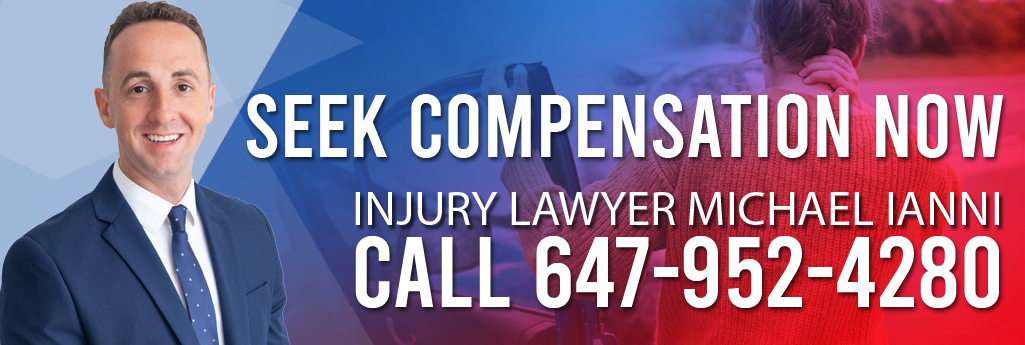


How Much Compensation Will I Get for a Head Injury in Ontario, Canada
How Long Do Head Injuries Take to Heal in Ontario, Canada
Understanding the healing process of head injuries is crucial for patients and their loved ones, as it provides valuable insights into recovery timelines and expectations.
First of all, you should understand the following:
- Types and Severity of Head Injuries
Head injuries range from normal concussions to severe traumatic brain injuries (TBIs). The type and severity of the injury play a significant role in determining the healing duration. It is essential to differentiate between acute injuries, where symptoms are immediate and typically resolve within a few weeks, and chronic injuries, which may require long-term management and rehabilitation. - Individual Factors
The healing duration of head injuries can vary greatly from person to person. Several individual factors influence the healing process, including:- Age: Younger individuals tend to recover more quickly from head injuries than older adults.
- Overall Health: Pre-existing medical conditions and health status can impact the healing duration.
- Rehabilitation Compliance: Following recommended rehabilitation protocols and treatment plans can expedite healing.
- Type and Extent of Symptoms
The presence and persistence of symptoms significantly affect the healing timeline. Common symptoms of head injuries include headaches, dizziness, memory problems, mood changes, and difficulty concentrating. While many symptoms may resolve within a few weeks, others may persist for months or even longer. - Treatment and Rehabilitation
Proper medical intervention and rehabilitation play a crucial role in the healing process. Treatment plans for head injuries often include rest, pain management, cognitive therapy, physical therapy, and psychological support. Adhering to these treatments and engaging in rehabilitation exercises can promote recovery and shorten healing. - Post-Concussion Syndrome
In some cases, individuals may experience a condition known as post-concussion syndrome (PCS). This condition involves the persistence of symptoms beyond the expected healing period. PCS can prolong recovery, requiring specialized care and management to alleviate symptoms and support overall healing.
According to various studies conducted in Ontario and beyond, the healing duration for head injuries can vary significantly. Mild concussions typically resolve within a few days to a few weeks, while more severe TBIs may require months or even years to get back. It is essential to note that individual cases can deviate from these averages, and a medical professional should monitor the healing process.
It is highly recommended that individuals seek legal advice from a professional personal injury lawyer specializing in head injury cases to ensure they receive fair and suitable compensation for their losses. A qualified and experienced lawyer can help injured individuals navigate the complex compensation process for head injuries in Ontario.
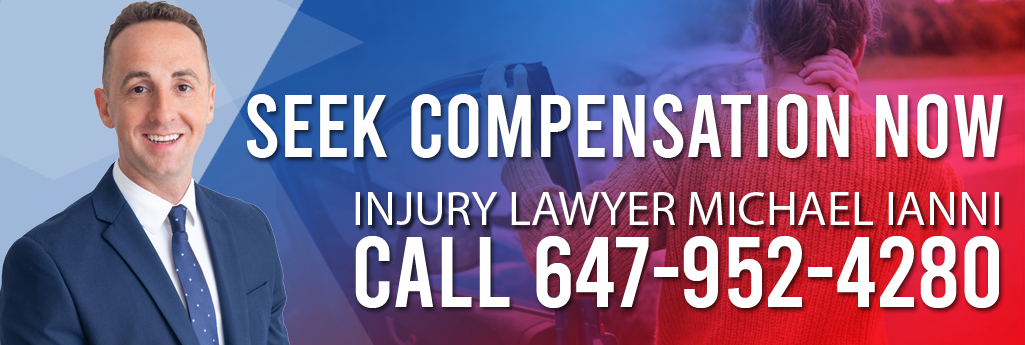

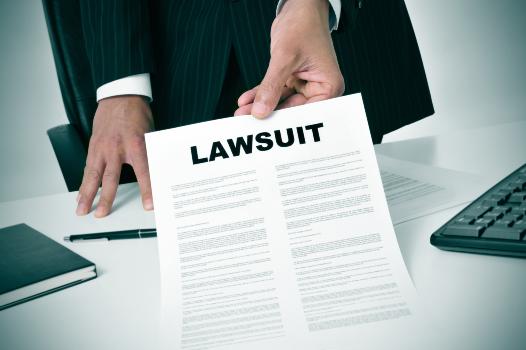
How Much Compensation for Minor Head Injury in Ontario, Canada
How Long After a Head Injury Can Symptoms Occur in Ontario, Canada
It is important to understand that head injury symptoms can manifest in various ways and at different times, making the recovery journey complex and often unpredictable.
- The Varied Onset of Head Injury Symptoms
One of the distinctive characteristics of head injuries is that symptoms can present themselves immediately after the trauma or appear gradually over time. The time frame for symptom onset is influenced by various factors, including the type and severity of the injury, individual differences in healing capacity, and the effectiveness of treatment and rehabilitation. - Immediate symptoms
Some individuals may experience immediate symptoms following a head injury, such as headaches, dizziness, confusion, memory problems, or changes in mood and behaviour. These symptoms typically arise within minutes to hours after the injury and may persist for varying durations. - Delayed Symptoms
Head injury symptoms may not become apparent in certain cases until days, weeks, or even months after the initial trauma. This delayed onset can be challenging, as individuals may not immediately associate these symptoms with their prior head injury. Examples of delayed symptoms include persistent headaches, cognitive difficulties, sleep disturbances, mood changes, or sensitivity to light and noise. - Post-Concussion Syndrome and Prolonged Symptoms
Post-Concussion Syndrome (PCS) is a condition characterized by the persistence of symptoms following a concussion or mild traumatic brain injury (TBI). Approximately 10-20% of individuals who experience a concussion are estimated to develop PCS. The duration of PCS symptoms can vary widely, with some individuals recovering within weeks or months. In contrast, others may experience symptoms for a year or more.
Common symptoms of PCS include persistent headaches, dizziness, fatigue, difficulty concentrating or remembering, irritability, and changes in sleep patterns. These symptoms can significantly impact an individual’s daily life, affecting their work, relationships, and overall well-being.
Head injuries can have unpredictable symptoms, so seeking medical attention promptly is important, even for seemingly minor injuries. A thorough judgement is necessary to determine the intensity of the damage and the appropriate treatment.
Treatment often involves a multidisciplinary approach, including medication, therapy, lifestyle adjustments, and counselling. Ongoing support and monitoring are crucial for recovery. It’sIt’s important to understand that head injury symptoms can appear immediately or with a delay, emphasizing the need for immediate medical attention and following treatment plans.
A head injury doctor can provide personalized care and support throughout the healing journey. Moreover, you can contact our recommended head injury lawyer to discuss the compensation you may be entitled to.
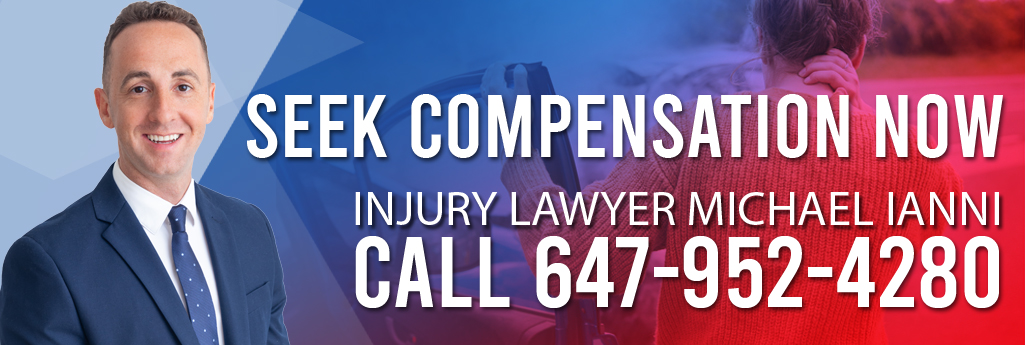


How Much Compensation for Serious Head Injury in Ontario, Canada
How to Avoid Head Injuries in Car Accidents in Ontario, Canada
In Ontario, car accidents can pose a significant risk of head injuries. It is crucial to prioritize safety and take preventive measures to avoid such injuries. By being aware of potential risks and implementing preventative measures, individuals can reduce the likelihood of head injuries in car accidents in Ontario.
We have shared valuable insights and practical tips on avoiding head injuries in car accidents, specifically in Ontario. By following these guidelines, you can enhance your safety and protect yourself from potential harm in the event of an accident.
- Buckle Up for Safety: The most crucial step in preventing head injuries in car accidents is wearing seat belts correctly. It is required to always wear your seat belt and ensure that all passengers in your vehicle do the same.
- Adjust the Headrests: Adjust the headrest so that its top is level with the top of your head or at least as high as your ears. Ensure the headrest is close to the back of your head without causing discomfort. Ensure that the headrest is securely locked in place and doesn’t move easily. A stable headrest can effectively absorb impact forces, reducing the chances of head injuries.
- Child Safety Seats: Children are particularly vulnerable in car accidents, and proper use of child safety seats is crucial for their protection. Follow the guidelines provided by Ontario’sOntario’s Highway Traffic Act and ensure that child seats are correctly installed and appropriate for the child’s age and size.
- Responsible Driving: Adhering to traffic laws and speed limits is vital for minimizing the risk of car accidents and subsequent head injuries. Avoid interruption while driving, such as texting or using electronic devices, as they significantly impair your ability to react to potential hazards on the road.
- Defensive Driving: Maintaining a safe following distance from the vehicle ahead allows you to react promptly to immediate stops or changes in traffic flow. This defensive driving technique helps prevent rear-end collisions, often resulting in severe head injuries.
- Avoid Impaired Driving: Driving under the influence of alcohol, drugs, or medications impairs judgement, coordination, and reaction times, significantly increasing the risk of car accidents and head injuries. Always designate a sober driver or utilize alternative transportation if you cannot drive safely.
- Follow Road Signs & Signals: It is essential to adhere to road signs and signals to maintain order and safety on the roads. This includes obeying yield signs and giving the right of way to other vehicles or pedestrians when required.
Preventing head injuries in car accidents is a shared responsibility that requires individuals to prioritize safety and adopt responsible driving habits. By correctly wearing seat belts, securing children with appropriate restraints, obeying traffic laws, following safe distances, and avoiding impaired driving, we can significantly reduce the risk of head injuries on Ontario’sOntario’s roads. You should consult with an injury lawyer immediately in case of any mishap.
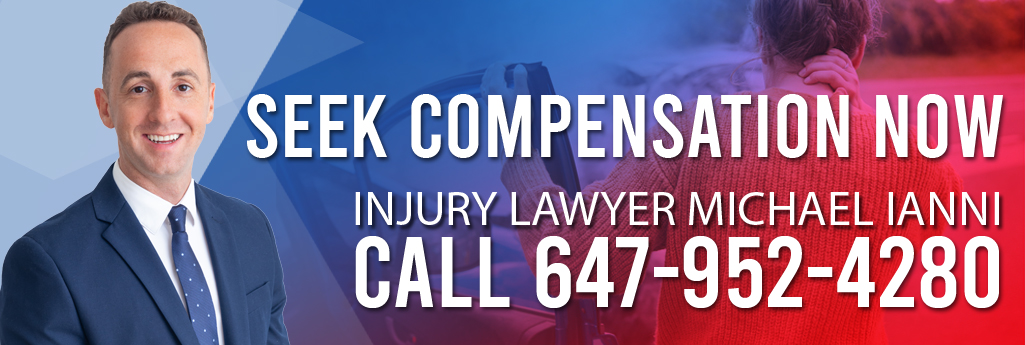


How Much Compensation Do You Get for Head Injury in Ontario, Canada
Calculating Compensation: How Much Compensation Do You Get for a Head Injury in Ontario, Canada
Each case is unique, and the compensation for head injuries varies based on several factors. Head injuries encompass a wide range of conditions, from mild concussions to severe traumatic brain injuries (TBIs). The severity and long-term consequences of the injury significantly influence the compensation amount.
According to the Insurance Bureau of Canada (IBC), the average cost of a head injury claim in Ontario is between $75,000 and $90,000. Remember, this is not a hard and fast rule that you will get compensation as per the given numbers. Compensation may vary because of the severity of the injury. The number could be greater or lower based on your case.
Compensation for head injuries in Ontario aims to cover various economic damages incurred due to the injury. This includes medical expenses, such as hospitalization, surgeries, diagnostic tests, medications, rehabilitation, and ongoing medical care. Documenting all medical costs to ensure they are considered during the compensation process is crucial.
Lost wages may also be compensated if the head injury hinders an individual’s ability to work temporarily or permanently. Compensation may cover lost wages and potential future earnings. Rehabilitation programs, therapy sessions, assistive devices, and necessary accommodations may also be covered to support the individual’s recovery and overall well-being.
Determining the compensation amount for head injuries involves considering case-specific factors. The strength and validity of medical evidence play a crucial role in determining the compensation amount. Expert medical opinions and assessments help establish the severity and long-term implications of the head injury.
The impact of the head injury on daily life, including the ability to perform activities, enjoy social interactions, and maintain relationships, is also considered. Suppose the individual had pre-existing conditions exacerbated by the head injury. In that case, the compensation amount might reflect the impact of these conditions.

InjuredInAnAccident.ca
, Ontario
Tel: (647) 952-4280

*The laws pertaining to automotive injuries are complex and are contsantly evolving. The information on this website was not written by legal professionals and should not be considered legal advise. Please contact a professional personal injury lawyer serving Ontario for the most up to date and accurate information.




